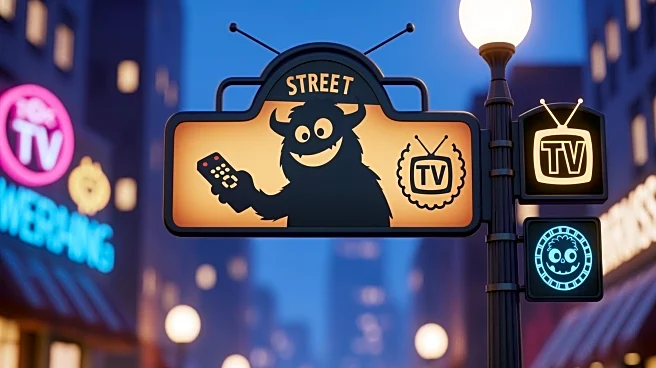What's Happening?
TVLine's 'What to Watch' column has spotlighted several new and returning shows premiering on November 10, 2025. Among the highlights is the debut of 'The Paper' on NBC, a network drama that explores the intricacies
of journalism. Additionally, 'Sesame Street' makes its debut on Netflix, marking a significant shift from its traditional PBS home. The move to Netflix is part of a broader trend of popular shows transitioning to streaming platforms. Other notable mentions include 'Bat-Fam' on Prime Video, which offers a fresh take on superhero narratives, and various documentaries and reality shows across different networks.
Why It's Important?
The debut of 'Sesame Street' on Netflix signifies a major change in the distribution of children's educational programming. This transition reflects the growing influence of streaming services in shaping viewing habits and content accessibility. As more shows move to streaming platforms, traditional networks may face challenges in retaining viewership and adapting to new consumption patterns. The inclusion of diverse programming, such as 'The Paper' and 'Bat-Fam,' highlights the evolving landscape of television, where content variety and accessibility are increasingly prioritized.
What's Next?
The shift of 'Sesame Street' to Netflix may lead to further discussions on the future of children's programming and its accessibility. As streaming services continue to acquire popular content, traditional networks might need to innovate to maintain relevance. The success of new premieres like 'The Paper' could encourage networks to invest in original programming that appeals to niche audiences. Stakeholders in the media industry may explore new partnerships and distribution models to adapt to these changes.
Beyond the Headlines
The transition of 'Sesame Street' to Netflix raises questions about the impact on public broadcasting and its funding. As educational content moves to private platforms, there may be concerns about accessibility for all families, particularly those without streaming subscriptions. This development could prompt discussions on the ethical responsibilities of streaming services in providing inclusive and accessible content.











